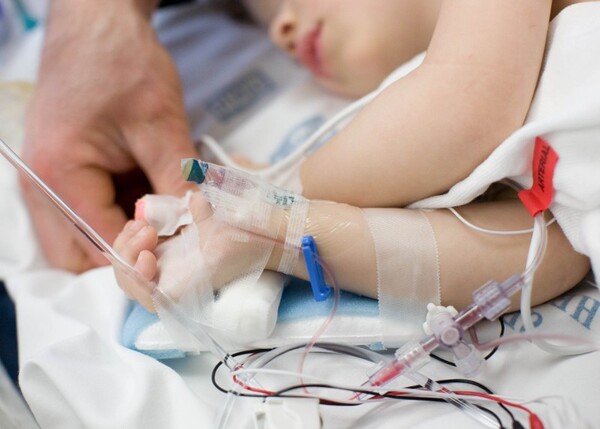
Three first-year medical residents have recently left the pediatrics department at Seoul National University Hospital.
The collapse of the pediatric healthcare delivery system, which has gradually progressed in provincial hospitals, finally reached the Seoul National University Hospital, shaking even the nation’s most prestigious medical institution, medical sources said Friday.
According to the medical community, three first-year medical residents left the SNUH Pediatric Department from May to August, leaving only 11 doctors.
Fortunately, one new resident filled the void for the second half-year but the workload pressure due to manpower shortage remains high because most of the patients are critically ill children, the sources said.
Hospital officials said that the doctors who left SNUH reportedly complained about the burden of treating severely ill pediatric patients and the resulting workload, malicious complaints from parents, and frequent medical disputes. Eventually, they decided there was no future for them and abandoned the department, they added.
"As severe pediatric patients flocked to SNUH, the number of patients we had to see rose from the past, increasing our workload,” a hospital official said. “On the other hand, the treatment environment when they become specialists does not motivate them to remain."
"Recently, a local court made ruling to pay 1 billion won ($758,000) in compensation for permanent developmental disability after pediatric heart surgery. They can't help but face situations where medical institutions get involved in lawsuits for unavoidable reasons, which also works as a burden," the official added.
Besides, there are insurance issues regarding some treatments that the government insurer fails to catch up, so doctors ask the guardians for their consent in advance and treat patients after receiving their consent, the official said in a telephone interview with Korea Biomedical Review, adding that doctors sometimes feel skeptical when parents raise problems or complaints after the treatment is over.
"The residents can't help but worry that they will face an unstable medical environment after such hard training," he said. "The remaining residents and full-time doctors share the workload, but the overwork is unavoidable."
SNUH’s pediatric department has been working on self-help steps to fill the vacancies, but they are facing great difficulties only three months before next year's recruitment. In response, the department is preparing to reorganize its staffing system if it cannot fill the vacancies.
Severance Hospital also has a shortage of specialists in the Department of Pediatrics. Samsung Medical Center and Asan Medical Center filled up vacancies this year, but had suffered shortage until last year. The crisis at SNUH came a little later, but the official said it had to come sooner or later.
"Apart from the departure of first-year residents, we are also preparing to reorganize the staffing system in case we cannot fill the quota in recruiting next year's residents," he said. “Even the prestigious name SNUH no longer works for the department of pediatrics."
Related articles
- Pediatrics sees dismal 2.8% application rate in H2
- Pediatricians' group to sue mother for sending 9-year-old to clinic alone
- Children's hospitals to play role in pediatric emergency care 'with government aid'
- Even 1,000 more physicians won’t solve problems, angry practitioners say
- Increasing doctors is no solution to essential care crisis: psychiatrists

